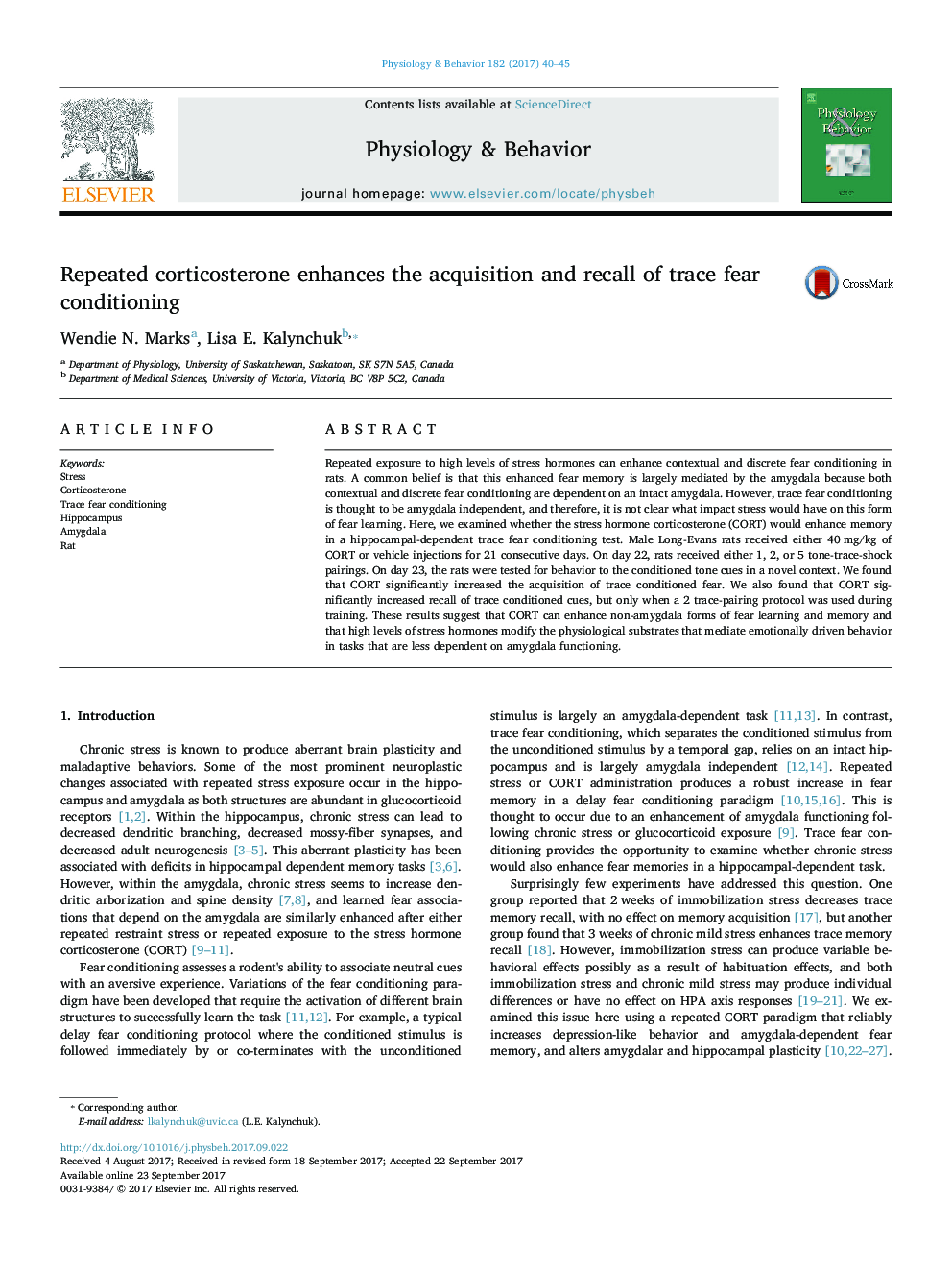| Article ID | Journal | Published Year | Pages | File Type |
|---|---|---|---|---|
| 5593551 | Physiology & Behavior | 2017 | 6 Pages |
Abstract
Repeated exposure to high levels of stress hormones can enhance contextual and discrete fear conditioning in rats. A common belief is that this enhanced fear memory is largely mediated by the amygdala because both contextual and discrete fear conditioning are dependent on an intact amygdala. However, trace fear conditioning is thought to be amygdala independent, and therefore, it is not clear what impact stress would have on this form of fear learning. Here, we examined whether the stress hormone corticosterone (CORT) would enhance memory in a hippocampal-dependent trace fear conditioning test. Male Long-Evans rats received either 40Â mg/kg of CORT or vehicle injections for 21 consecutive days. On day 22, rats received either 1, 2, or 5 tone-trace-shock pairings. On day 23, the rats were tested for behavior to the conditioned tone cues in a novel context. We found that CORT significantly increased the acquisition of trace conditioned fear. We also found that CORT significantly increased recall of trace conditioned cues, but only when a 2 trace-pairing protocol was used during training. These results suggest that CORT can enhance non-amygdala forms of fear learning and memory and that high levels of stress hormones modify the physiological substrates that mediate emotionally driven behavior in tasks that are less dependent on amygdala functioning.
Related Topics
Life Sciences
Biochemistry, Genetics and Molecular Biology
Physiology
Authors
Wendie N. Marks, Lisa E. Kalynchuk,
